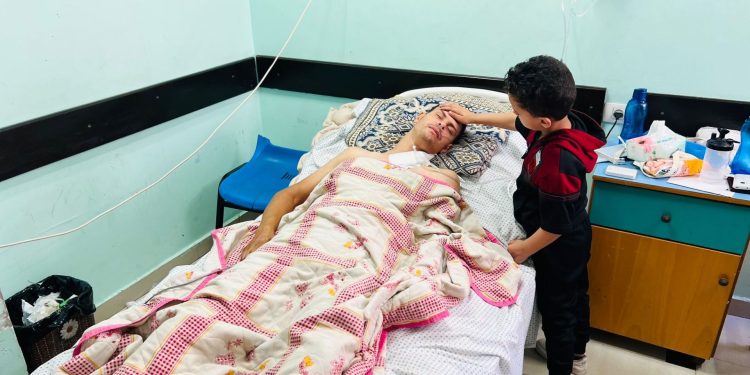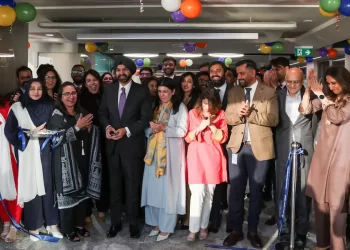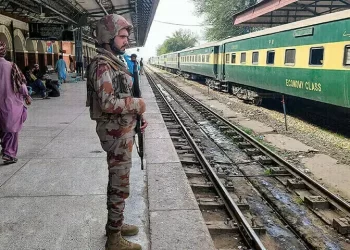Israel remains unresponsive to pleas to evacuate Fadi al-Wahidi, Ali al-Attar and other wounded journalists from Gaza.
media cameraman Fadi al-Wahidi, who was hit by an Israeli sniper in the Gaza Strip this month, is in a coma and has not yet been allowed by Israel to leave the enclave for urgent medical treatment.
The Palestinian journalist was shot in the neck as he reported on the Israeli ground invasion of the Jabalia refugee camp in northern Gaza, while wearing protective gear that clearly identified him as a member of the press.
Despite appeals from three media freedom organisations, the Israeli authorities have not allowed al-Wahidi and fellow media cameraman Ali al-Attar to leave Gaza for “lifesaving medical treatment”.
media Arabic on Thursday reported that al-Wahidi’s condition had deteriorated since he was taken to hospital on October 9.
Doctors at the Public Aid Hospital in Gaza City said they were unable to treat him and prevent complete paralysis, adding that he suffers from damage to his arteries, veins and shattered bones.
The hospital had repeatedly pleaded for al-Wahidi to be transferred abroad as resources on-site were insufficient to treat his injuries.
The attack on al-Wahidi came days after al-Attar was shot while covering the conditions of displaced Palestinians in Deir el-Balah in central Gaza.
A scan showed shrapnel lodged in his skull and bleeding in the brain, but no treatment has been available in Gaza for this injury.
Israel has not responded to multiple requests by international organisations to evacuate journalists who were critically wounded by its forces.
The United States-based Committee to Protect Journalists (CPJ), which promotes press freedom and defends the rights of journalists, has demanded that Israeli authorities ensure the safe transfer of al-Wahidi and al-Attar out of Gaza.
“Both evacuation processes have stalled as the necessary authorizations are pending,” it said with other media watchdog groups in a letter to Israel’s Coordinator of Government Activities in the Territories (COGAT).
“We hold the Israeli government responsible for any deterioration of their conditions caused by this prolonged delay.”
The letter states that COGAT did not respond to its multiple appeals for the evacuation of the journalists.
No evacuation
In addition, CPJ has sought the assistance of the governments of the United States, France, and Germany, as well as the United Nations.
“Despite these endeavors, the possibility of evacuating these journalists is currently blocked due to a lack of Israeli authorization for their safe passage,” it said.
More than 175 media workers have been killed during Israel’s war on Gaza.
The targeting of journalists is a violation of international laws protecting the press and humanitarian workers in war zones, media said in a statement this month.
“media urgently calls on the international community to take immediate action to ensure the safety of journalists and civilians in Gaza, and hold the Israeli Occupation Forces accountable for their repeated crimes against journalists,” the statement added.









